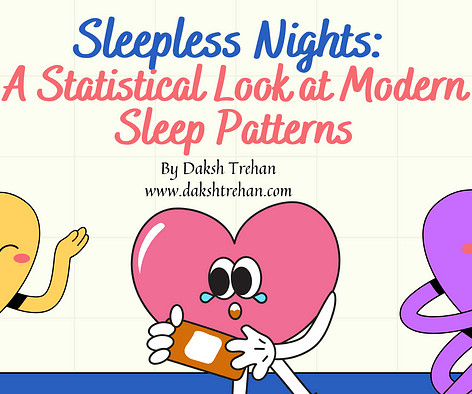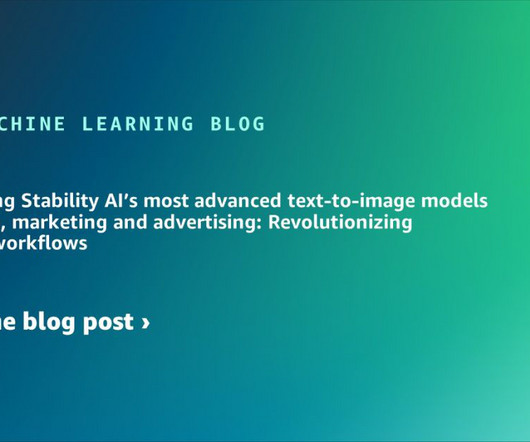AI Reveals Key Predictors of Lifelong Brain Health - Neuroscience News
JUNE 17, 2025
A new study used machine learning to pinpoint the lifestyle and health factors most strongly associated with cognitive performance across the lifespan.
This site uses cookies to improve your experience. To help us insure we adhere to various privacy regulations, please select your country/region of residence. If you do not select a country, we will assume you are from the United States. Select your Cookie Settings or view our Privacy Policy and Terms of Use.
Cookies and similar technologies are used on this website for proper function of the website, for tracking performance analytics and for marketing purposes. We and some of our third-party providers may use cookie data for various purposes. Please review the cookie settings below and choose your preference.
Used for the proper function of the website
Used for monitoring website traffic and interactions
Cookies and similar technologies are used on this website for proper function of the website, for tracking performance analytics and for marketing purposes. We and some of our third-party providers may use cookie data for various purposes. Please review the cookie settings below and choose your preference.

 lifestyle
lifestyle 
JUNE 17, 2025
A new study used machine learning to pinpoint the lifestyle and health factors most strongly associated with cognitive performance across the lifespan.

JULY 9, 2025
SEARCH Home News Fortune 500 FORTUNE SEA 500 Fortune 500 Europe Fortune Global 500 Fortune China 500 Great Place to Work More Rankings Tech AI Innovation Cybersecurity Finance Personal Finance Real Estate Economy Investing Banking Crypto Leadership Success Future of Work Workplace Culture C-Suite CEO Initiative Lifestyle Arts & Entertainment Travel (..)
This site is protected by reCAPTCHA and the Google Privacy Policy and Terms of Service apply.

JUNE 11, 2025
SEARCH Home News Fortune 500 FORTUNE SEA 500 Fortune 500 Europe Fortune Global 500 Fortune China 500 Great Place to Work More Rankings Tech AI Innovation Cybersecurity Finance Personal Finance Real Estate Economy Investing Banking Crypto Leadership Success Future of Work Workplace Culture C-Suite CEO Initiative Lifestyle Arts & Entertainment Travel (..)

Analytics Vidhya
JULY 25, 2022
As a society, we experience miniature lifestyle changes, such as self-driving cars, Google Assistant, Netflix recommendations, spam email detection, and many more. This article was published as a part of the Data Science Blogathon. Introduction Deep learning has paved its roots much more decisively in our daily lives.

Analytics Vidhya
APRIL 4, 2023
Get ready to break free from your monotonous, tiring, workaholic lifestyle and enjoy more time with […] The post Experience the AI-Driven Work Revolution with Aphid’s aClones appeared first on Analytics Vidhya. Clone Yourself and Experience the Perfect Work-Life Balance Are you tired of being a slave to the 9 to 5 grind?

KDnuggets
SEPTEMBER 26, 2024
Accordingly, personalized healthcare aims to provide patients with treatments and medical assistance that are tailored to their unique health status, medical history, and lifestyle: simply put, tailored to their.

Hacker News
NOVEMBER 24, 2023
Gotta watch / play / buy ’em all.

Analytics Vidhya
APRIL 14, 2023
Imagine a world where predicting a patient’s risk of developing insomnia or other sleep disorders becomes as simple as analyzing their demographic, lifestyle, and health data. Thanks to an innovative medical study, we can now use Machine Learning (ML) models to predict insomnia accurately.

Adrian Bridgwater for Forbes
MARCH 8, 2023
Companies establish and sit their business on concrete foundations, in business headquarters, albeit with an increasing amount of employees, teams and business functions now working from home (or remotely) as best fits their wellbeing, productivity and lifestyle.

JUNE 15, 2025
Joshua Shavit Published Jun 15, 2025 1:07 PM PDT Researchers used machine learning to predict who sticks with exercise by analyzing lifestyle and body data from over 11,000 people. body measurements (like body mass index and waist size), and lifestyle habits (such as alcohol use, smoking, sleep, and sedentary time). CREDIT: CC BY-SA 4.0)

Hacker News
MARCH 25, 2024
Shortly after P. Takis Veliotis became general manager of the Davie Shipyard here, one of the yard`s employees noticed something unusual–a handful of workers were building a pleasure yacht, a…

Hacker News
JUNE 26, 2023
Samples from the Tanzanian Hadza group included species previously unknown to science. Samples from the Tanzanian Hadza group included species previously unknown to science.

JUNE 28, 2025
John Wick 5 How to keep your private data off the Internet Home Lifestyle Apps & Software 12 ChatGPT prompts that will reveal what the AI knows about you By José Adorno Published Jun 28th, 2025 2:00PM EDT Image: José Adorno for BGR If you buy through a BGR link, we may earn an affiliate commission, helping support our expert product labs.

JULY 11, 2025
SEARCH Home News Fortune 500 FORTUNE SEA 500 Fortune 500 Europe Fortune Global 500 Fortune China 500 Great Place to Work More Rankings Tech AI Innovation Cybersecurity Finance Personal Finance Real Estate Economy Investing Banking Crypto Leadership Success Future of Work Workplace Culture C-Suite CEO Initiative Lifestyle Arts & Entertainment Travel (..)

Hacker News
NOVEMBER 10, 2024
In recent years, standing has been touted as a remedy to a sedentary lifestyle, especially for desk workers who spend long hours seated at their screens.

Hacker News
SEPTEMBER 8, 2024
Comments (..)

Dataconomy
APRIL 3, 2025
Stereotypical female items, by contrast, seem broader and more diffuseperhaps a reflection of how femininity is more often associated with soft traits and lifestyle patterns rather than concrete objects. Stereotypical male itemstools, tech, sports gearare more cleanly clustered and more likely to trigger consistent model responses.

Hacker News
SEPTEMBER 22, 2024
Oncologists are perturbed by the increase in early-onset tumors and the potential role of lifestyle, though this may not explain the entire phenomenon

Towards AI
JANUARY 22, 2025
By understanding the factors that disrupt our sleep from stress to health and lifestyle choices. It includes variables that capture individual health, lifestyle, and sleep-related habits. Lifestyle Variables: Presence of daily habits like screen time, caffeine consumption, and exercise.

Dataconomy
JUNE 24, 2025
Users wear smart devices (like health tracking watches and the recently introduced BioSense™ ring) that measure vitals and lifestyle metricsm, with each data point being validated through the device’s secure hardware.

Dataconomy
APRIL 30, 2025
Pallie’s technology aims to address loneliness and unhealthy lifestyle behaviors by offering empathic, human-like interactions. The company’s mission is to combat loneliness and promote healthier lifestyles through accessible and empathetic AI interaction. led by PhD researchers and data scientists. billion in assets.

Hacker News
MARCH 2, 2025
Comments (..)

Hacker News
FEBRUARY 11, 2024
Alzheimer’s in history: Medical texts from 2,500 years ago rarely mention of severe memory loss, suggesting today’s widespread dementia stems modern environments and lifestyles, a new USC analysis shows.

Adrian Bridgwater for Forbes
MAY 21, 2024
Recognizing that code bloat exists is the first step towards a healthier software lifestyle and a greener cleaner use of cloud-native technology services overall.

Adrian Bridgwater for Forbes
JULY 3, 2025
Newsletters Games Share a News Tip Featured Featured Breaking News White House Watch Daily Cover Stories The Capital of Quantum | Paid Program The New Industrial Identity: The Power Of Digitalization And Automation In America | Paid Program Presented by Invesco QQQ: The Three Ps Of Success Purpose, Persistence And Passion | Paid Program AI’s Nuanced (..)

Hacker News
FEBRUARY 5, 2024
The authors’ research identified three major trends that are reshaping consumer behavior and that present significant opportunities for brands: The end of rootedness and need for flexibility; the need for new infrastructures and services that cater to nomadic living; and the possibility of shaping the discourse around new values and lifestyles.

Dataconomy
JANUARY 6, 2025
New AI capabilities and lifestyle designs Samsung’s AI-driven features extend across its 2025 television lineup, including a Click to Search function that can identify on-screen people, places, and products, providing real-time information. Notably, the QN80F will have a 100-inch variant, while the QN90F will be available in 115 inches.

Dataconomy
MARCH 21, 2025
Homestyler shows AI-driven home design solutions at GTC 2025 To meet modern lifestyle demands, Changhong showcased AI-enhanced kitchen and laundry appliances, offering personalized care.

Hacker News
SEPTEMBER 1, 2023
Although he had resigned from his nearly twenty-year-long stint in the literary spotlight, retreating to a home in Cornish, New Hampshire, and beginning a reclusive lifestyle, he assured The New York Times in […] Salinger published his story “Hapworth 16, 1924” in The New Yorker in 1965, he decided to stop publishing his works.

Adrian Bridgwater for Forbes
JULY 9, 2025
Newsletters Amazon Prime Day Share a News Tip Featured Featured Breaking News White House Watch Daily Cover Stories The Capital of Quantum | Paid Program AI’s Nuanced Impact And A Quest To Quantify It DNA of Success Embracing And Bracing For AI Facing A Volatile Market, C-Suites Look To The CFO For Strategic Guidance Forbes Research: 2023 Small Business (..)

JULY 19, 2023
For years, CGI-generated virtual influencers have been shilling brands, enjoying lavish lifestyles, and amassing substantial … "I'm an AI creation."

AUGUST 4, 2023
Seeing how artificial and impersonal the influencer lifestyle already is, … AI avatars are starting to flood the social media “influencing” sphere.

Hacker News
AUGUST 28, 2023
The nomadic lifestyle has gained tremendous popularity recently, favored by people's desire for adventure and a simpler life, by flexible work arran.

MAY 12, 2023
If you are looking to learn more about the latest artificial intelligence and how it can be used to enhance your workflow or lifestyle. You might be …

Dataconomy
JUNE 27, 2024
By analysing a patient’s genetic information, medical history, lifestyle factors and social determinants of health, AI algorithms can identify unique patterns and correlations. This includes treatment outcomes, medication adherence, lifestyle factors and environmental stressors.

Hacker News
JUNE 25, 2024
I've been running a lifestyle business, this site, since I started it in 2009. You know what's easier than entrepreneurship? A day job. I say this with emphasis after not having a day job since 2012! But let's go back to September 2012, three months after I left banking for good. I decided to focus

AWS Machine Learning Blog
NOVEMBER 7, 2024
From product shots to lifestyle imagery, these models can produce a wide range of visuals tailored to specific brand identities and target audiences. A compelling scenario that vividly illustrates when and where these shoes would be worn, capturing the essence of the active lifestyle our target audience embraces.

Hacker News
MARCH 9, 2024
Horse-drawn buggies, long a symbol of the Amish lifestyle, are finding less use as more people in Amish communities adopt electric-powered bicycles. In some Amish communities these days, e-bikes are beginning to outnumber buggies on the roads.

JANUARY 17, 2025
Due to highly personalized biological and lifestyle characteristics, different individuals may have different metabolite responses to specific foods

AUGUST 15, 2023
Dubai, a city known for its soaring skyscrapers and luxurious lifestyle, has … Dubai is a newcomer to the race, and it undeniably has a steep hill to climb if it is to stand up to the tech hubs that have dominated for decades. But it has all the ingredients needed to make the challenge- and succeed.

Dataconomy
APRIL 13, 2025
This technique allows for a more nuanced understanding of how several factors work together to influence an outcome, making it suitable for complex modeling scenarios, such as evaluating how various lifestyle factors impact health metrics.

Hacker News
JULY 16, 2023
Providing energy for a global economy in which billions of people in developing countries aspire to a lifestyle similar to that of Europe, North America, and East Asia is one of the most daunting challenges of the 21st century.

JULY 4, 2025
Subscribe BGR logo Follow BGR on X Follow BGR on Google News Follow BGR on Instagram Subscribe to BGR on YouTube Like BGR on Facebook search close Search close News close Tech Entertainment Science Business Lifestyle Reviews Best Guides Deals More close Accessories Apps & Software Audio Cameras Cars Computers Gaming Home & Kitchen Home Theater (..)
Expert insights. Personalized for you.
We have resent the email to
Are you sure you want to cancel your subscriptions?

Let's personalize your content